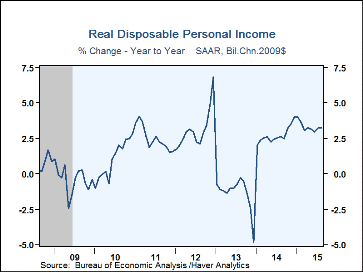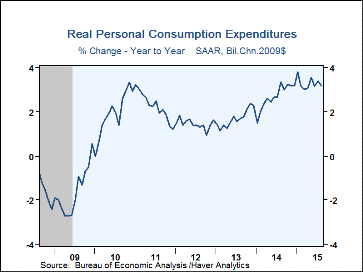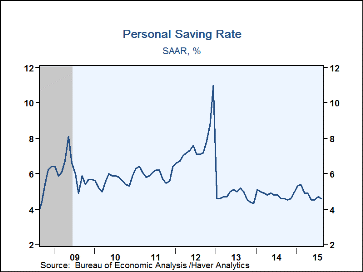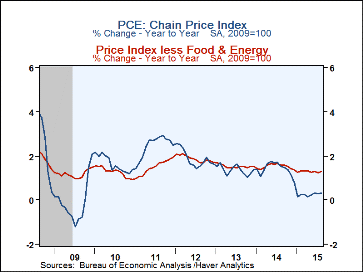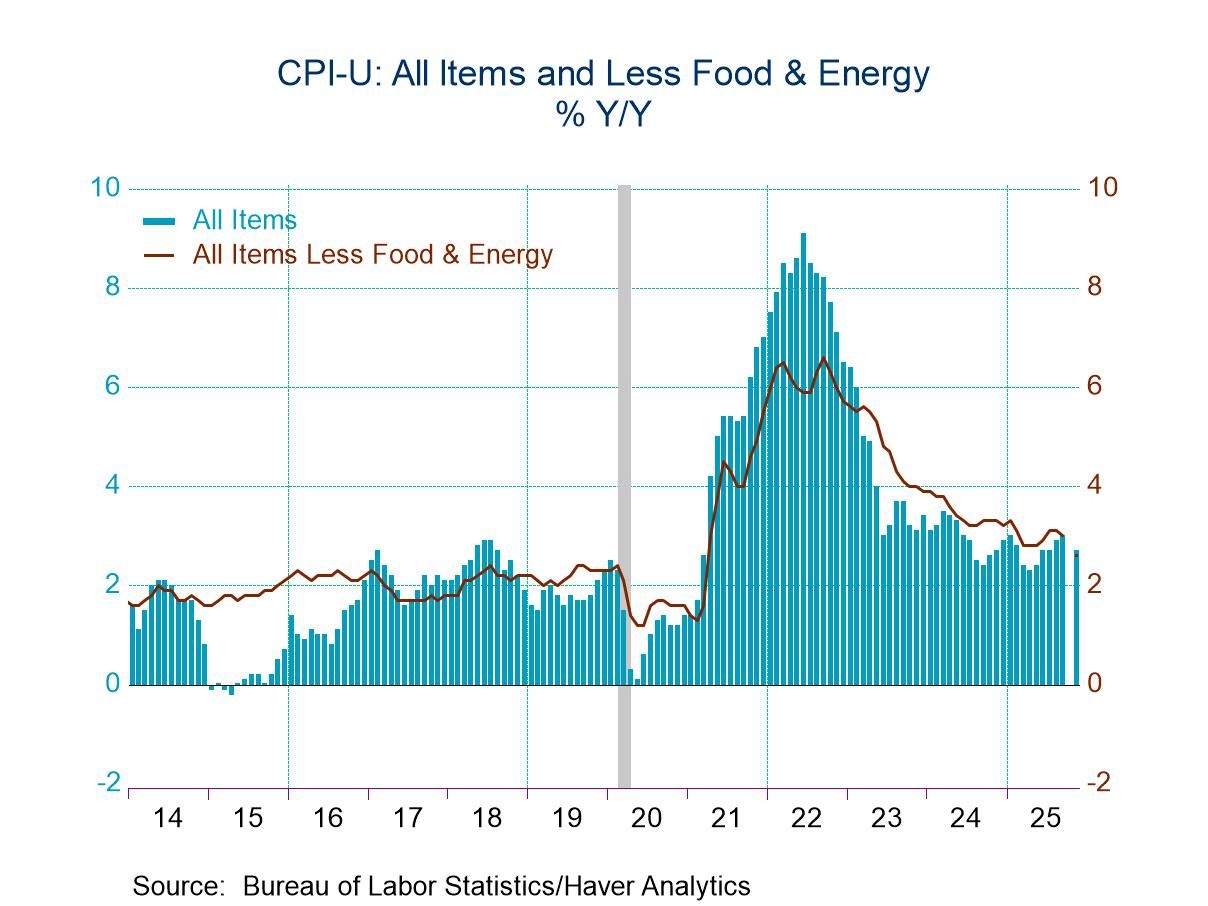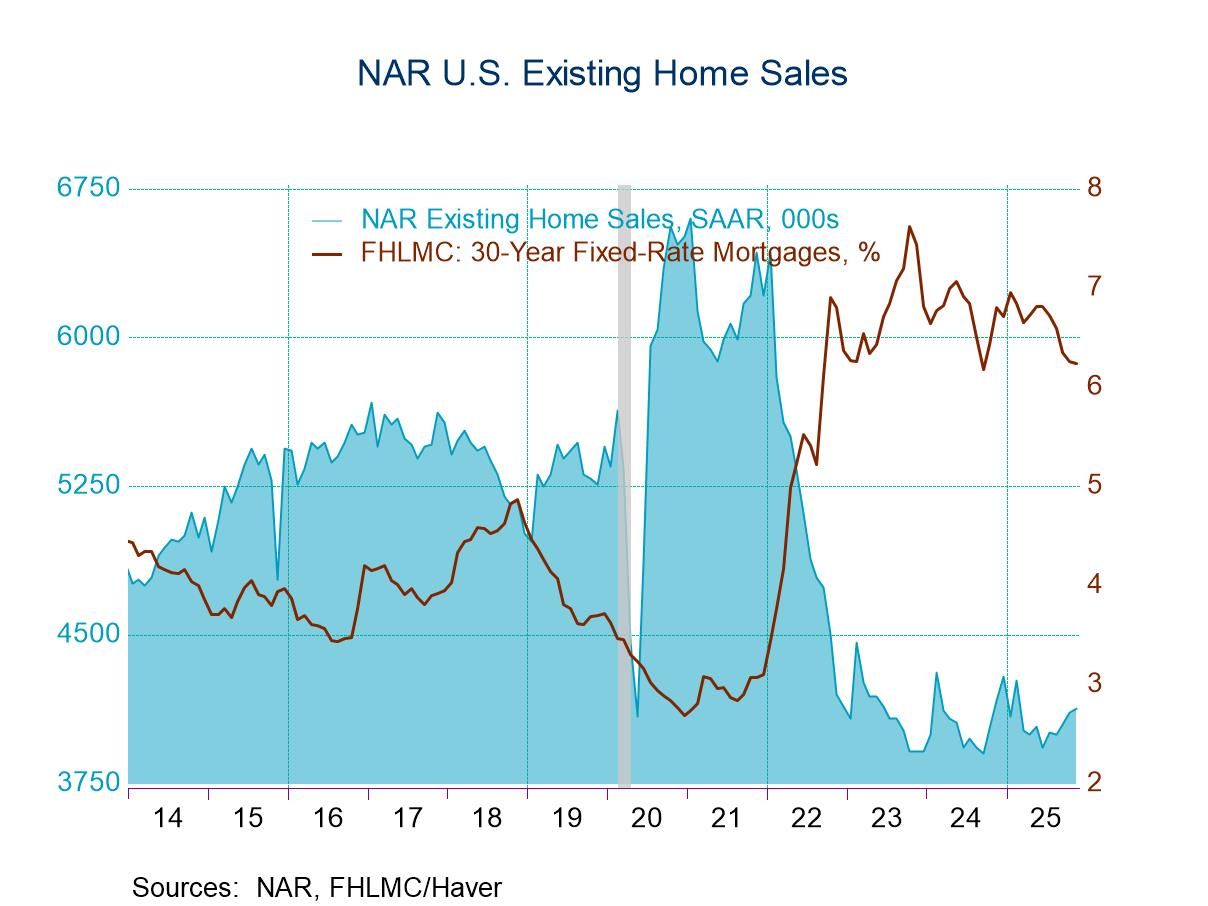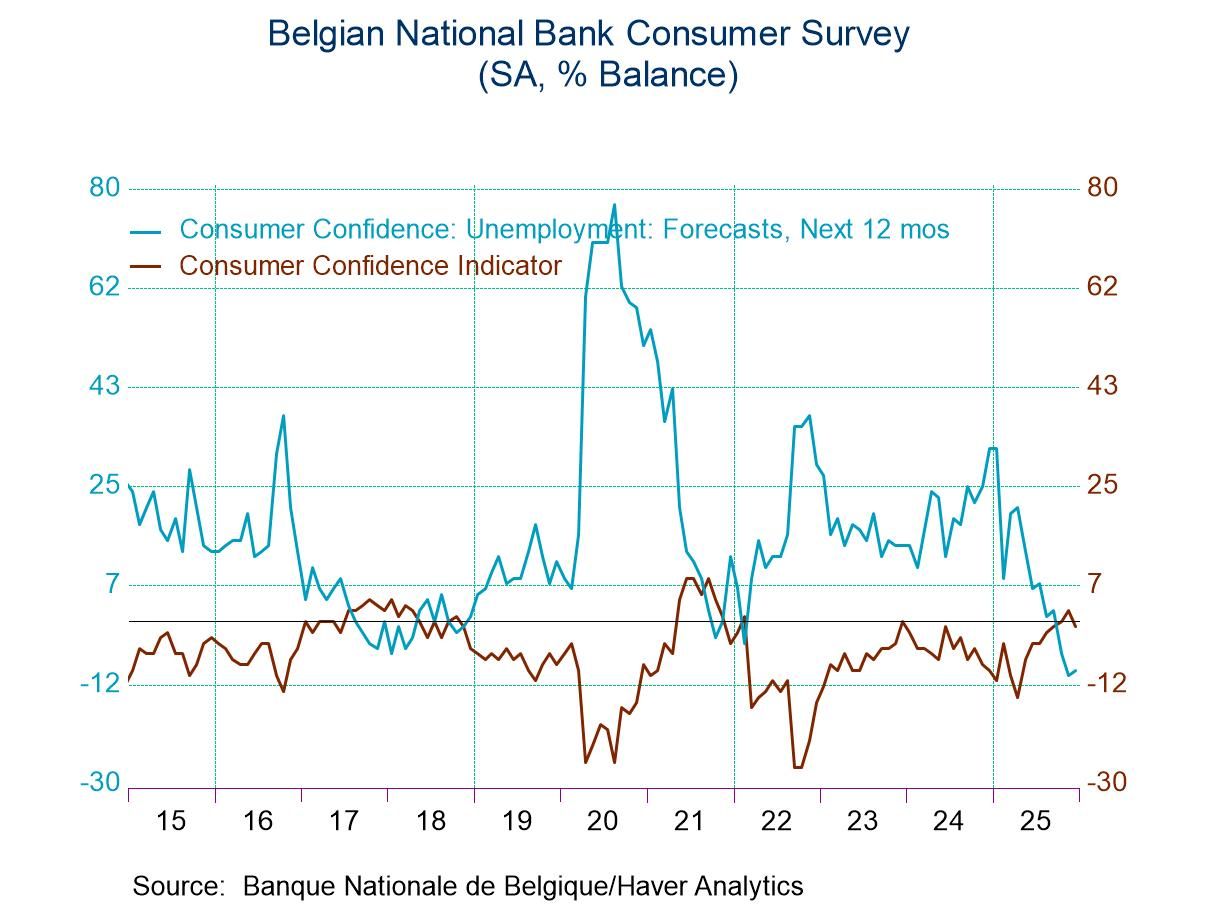 Global| Sep 28 2015
Global| Sep 28 2015U.S. Personal Income Gain Moderates; Spending Remains Firm
by:Tom Moeller
|in:Economy in Brief
Summary
Personal income increased 0.3% during August following a 0.5% July rise, revised from 0.4%. The latest gain was the weakest since March and disappointed expectations for a 0.4% rise in the Action Economics Forecast Survey. The source [...]
Personal income increased 0.3% during August following a 0.5% July rise, revised from 0.4%. The latest gain was the weakest since March and disappointed expectations for a 0.4% rise in the Action Economics Forecast Survey. The source of the weakness was a 0.1% slip (+2.9% y/y) in proprietors' income which followed three straight months of strong increase. A firm gain in average hourly earnings lifted wages & salaries by 0.5% (4.1% y/y), off slightly from a 0.6% July rise. Both remain the strongest gains since November. Rental income firmed 0.5% (7.7% y/y) following a 0.4% rise and transfer payments rose 0.3% (4.5% y/y). Jobless insurance payments jumped 1.2% (2.4% y/y) but veterans benefits declined 0.4% (+13.3% y/y), down for the second straight month. Social security receipts rose 0.4% (4.5% y/y) for a second consecutive month while unemployment insurance receipts surged 1.2% (2.4% y/y). Dividend receipts jumped 0.5% (5.1% y/y) but interest income ticked just 0.1% higher (3.6% y/y).
Disposable personal income increased 0.4% after a 0.5% rise. The 3.6% y/y gain was the strongest since February. Adjusted for price inflation, take-home pay rose 3.2% y/y.
Personal consumption expenditures increased 0.4% (3.5% y/y), the same as in July which was revised from 0.3%. The increase beat expectations for a 0.3% rise. Adjusted for stable prices, the 0.4% gain in spending was the strongest in three months. Real durable goods purchases jumped 1.2% (5.5% y/y), powered by a 2.1% surge (2.4% y/y) in motor vehicle purchases. Real recreational goods & vehicles buying rose 0.7% (9.0% y/y) but clothing & footwear purchases eased 0.1% (+3.4% y/y). Real gasoline purchases jumped 2.1% (4.7% y/y), the strongest gain since October of last year. The gain in constant dollar services purchases was held to 0.3% (2.8% y/y) by a 0.5% decline (-1.0% y/y) in real recreation services.
The personal savings rate fell to 4.6% from 4.7%, revised from 4.9%. The rate was below a February high of 5.4%. Personal saving increased 3.2% during the last twelve months.
The chain price index was unchanged (0.3% y/y). The index change was held back by a 2.3% decline (-16.2% y/y) in energy prices while food prices improved 0.2% (0.7% y/y), the same as in July. Durable goods prices eased 0.3% (-2.2% y/y) while nondurable goods prices declined 0.4% (-3.0% y/y). Services prices improved 0.2% (1.9% y/y). The price index excluding food & energy notched 0.1% higher (1.3% y/y) for the fourth straight month.
The personal income & consumption figures are available in Haver's USECON database with detail in the USNA database. The Action Economics figure is in the AS1REPNA database.
| Personal Income & Outlays (%) | Aug | Jul | Jun | Y/Y | 2014 | 2013 | 2012 |
|---|---|---|---|---|---|---|---|
| Personal Income | 0.3 | 0.5 | 0.4 | 4.2 | 4.4 | 1.1 | 5.0 |
| Wages & Salaries | 0.5 | 0.6 | 0.2 | 4.1 | 5.1 | 2.7 | 4.5 |
| Disposable Personal Income | 0.4 | 0.5 | 0.4 | 3.6 | 4.2 | -0.1 | 5.1 |
| Personal Consumption Expenditures | 0.4 | 0.4 | 0.3 | 3.5 | 4.2 | 3.1 | 3.4 |
| Personal Saving Rate | 4.6 | 4.7 | 4.5 | 4.6 (Aug '14) |
4.8 | 4.8 | 7.6 |
| PCE Chain Price Index | 0.0 | 0.1 | 0.2 | 0.3 | 1.4 | 1.4 | 1.9 |
| Less Food & Energy | 0.1 | 0.1 | 0.1 | 1.3 | 1.5 | 1.5 | 1.9 |
| Real Disposable Income | 0.3 | 0.4 | 0.2 | 3.2 | 2.7 | -1.4 | 3.1 |
| Real Personal Consumption Expenditures | 0.4 | 0.3 | 0.1 | 3.2 | 2.7 | 1.7 | 1.5 |
Tom Moeller
AuthorMore in Author Profile »Prior to joining Haver Analytics in 2000, Mr. Moeller worked as the Economist at Chancellor Capital Management from 1985 to 1999. There, he developed comprehensive economic forecasts and interpreted economic data for equity and fixed income portfolio managers. Also at Chancellor, Mr. Moeller worked as an equity analyst and was responsible for researching and rating companies in the economically sensitive automobile and housing industries for investment in Chancellor’s equity portfolio. Prior to joining Chancellor, Mr. Moeller was an Economist at Citibank from 1979 to 1984. He also analyzed pricing behavior in the metals industry for the Council on Wage and Price Stability in Washington, D.C. In 1999, Mr. Moeller received the award for most accurate forecast from the Forecasters' Club of New York. From 1990 to 1992 he was President of the New York Association for Business Economists. Mr. Moeller earned an M.B.A. in Finance from Fordham University, where he graduated in 1987. He holds a Bachelor of Arts in Economics from George Washington University.


